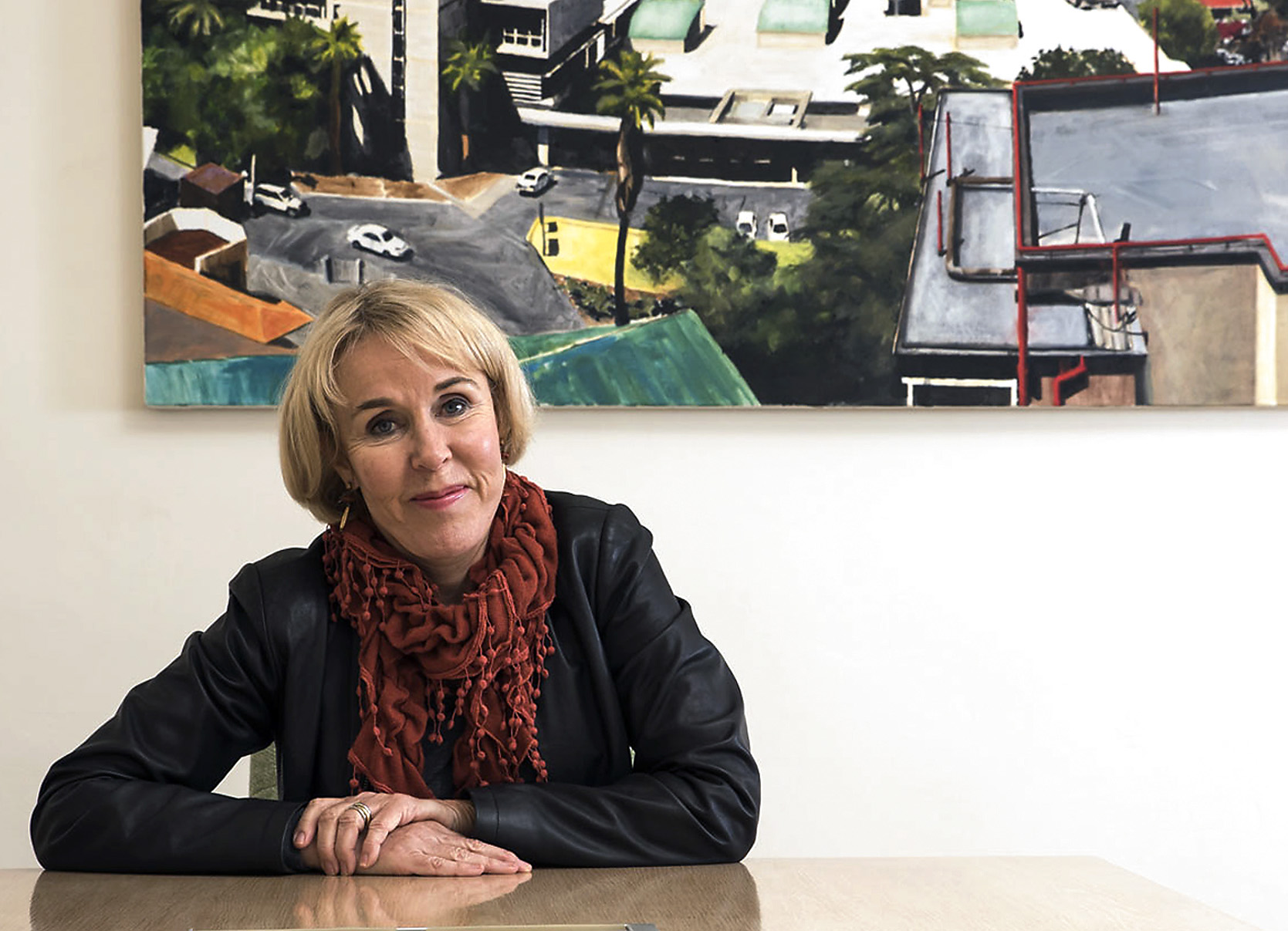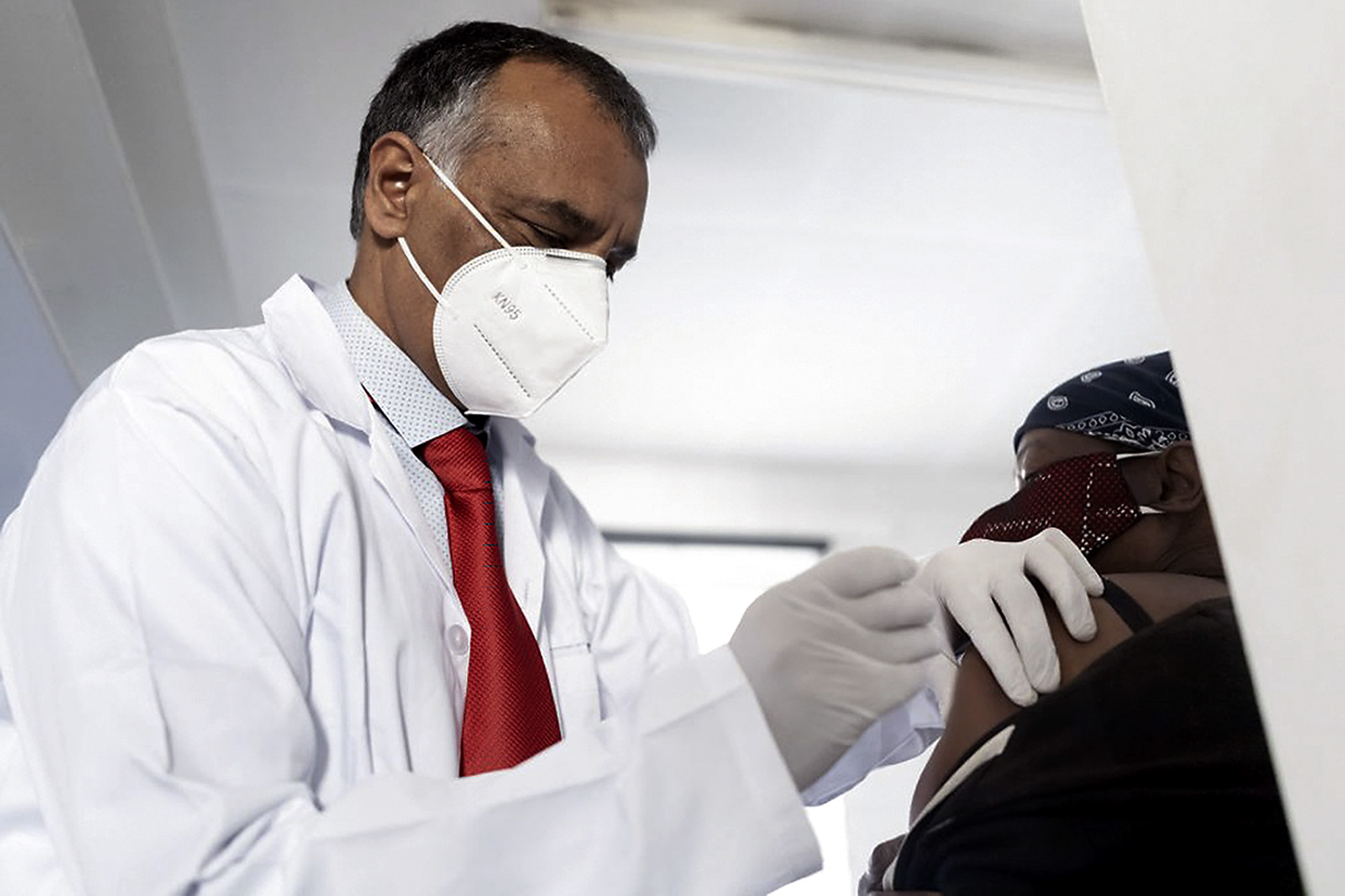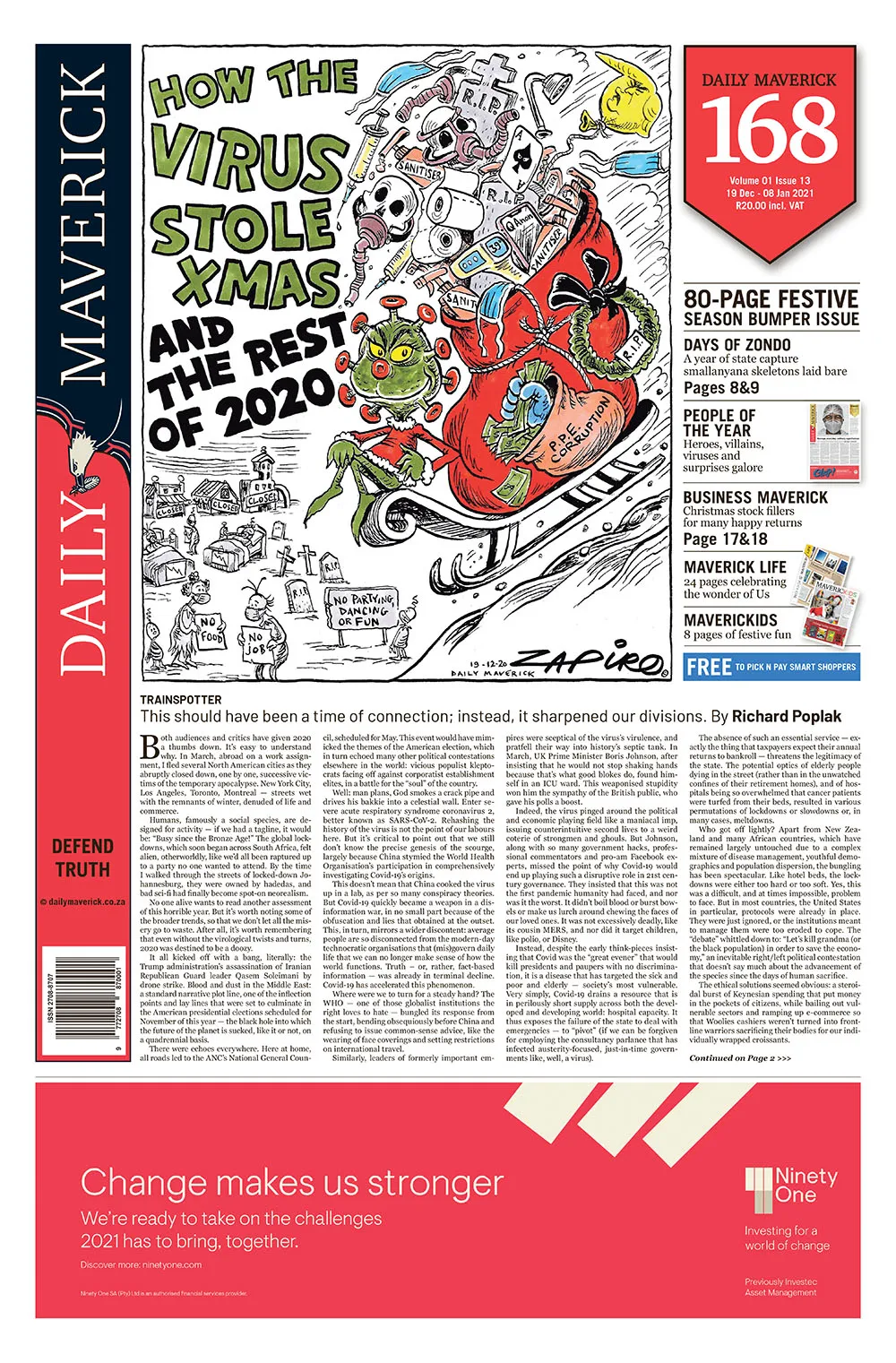DM 168 Year in Review
People of the Year – Runners-up: Vaccine Hunters

Sometimes in a crisis the point is to start taking the first steps towards the end goal and to keep going in that direction even when it looks as though all hope is lost.
First published in Daily Maverick 168 weekly newspaper
A group of South African scientists and researchers took the first steps in the elusive hunt for a vaccine in the first weeks that the Covid-19 virus started felling lives in the country in the same way it was doing in other parts of the world.
Our chase for a vaccine in a world changed by a virus represents humankind as an exquisite ecosystem, each person playing some part – not for glory or personal gain but because our very survival depends on it.
The behind-the-scenes work was completed by the first half of the year, so that by the middle of June scientists and researchers were ready with the public announcement that it was all systems go for clinical trials.
South Africa would be joining a global effort to trial the Ox1CoV-19 vaccine Vida-Trial, the so-called Oxford trial, led by the University of Oxford’s Jenner Institute and Oxford Vaccine Group.
The announcement came as much-needed good news in a bitter winter. South Africa’s infection rates and death numbers were spiking and the strain of hard lockdowns was hitting home. Doom beyond the front door became a frightful truth, surviving the virus seemed to be hit and miss and still the killer seemed invisible.
Then, from the live streaming and webinars, came the faces and voices of the man and women leading the clinical trials. They were people the public could see, hear and also begin to understand in a time of deep uncertainty.
At the helm was Shabir Madhi, a professor of vaccinology in the School of Pathology at the University of the Witwatersrand and director of the Medical Research Council’s Vida (Vaccines and Infectious Diseases Analytics) Research Unit.
With him at the announcement was Professor Helen Rees, who chairs the principal vaccine advisory group to the World Health Organization regional office for Africa and is a board member of the Global Alliance for Vaccines and Immunisation and the Coalition for Epidemic Preparedness.
Then there was Professor Glenda Gray, the CEO of the South African Medical Research Council and chair of the Research Committee on Covid-19.
They sounded authoritative and informed and, importantly, they seemed like people ready to take on the covert killer. In the months that have followed, they have proven to be less interested in becoming media darlings and more committed to getting useful, science-based information to the public. They have said yes to interviews and have stuck their necks out, even when it has earned them backlash. They recognise that toeing a government line or shrinking from speaking publicly, even when it appears to be dissent, amounts to disservice in staying the course to chase down a vaccine.
It is self-censorship that shuts down the flow of information and diminishes the role of science in an age when science-denialism has muscled out rational critique and rigorous review.
South Africa’s vaccine hunters are the humans among us who know that shooting for the stars matters in finding a vaccine in a time of global disease.
In the three people and their teams is, if not a promise, then at least a possibility that a solution to Covid-19 lies on a not-so-distant horizon. It has made the South African vaccine hunt one defined by firm leadership in difficult times; commitment because the greater good demands it; and a belief that scientific endeavour is as much about drawing the public into your confidence as it is about what goes on behind lab doors.
In the weeks following the announcement of the Oxford trial in South Africa there also emerged glimpses of the dozens of people who were the essential support system for such an endeavour. They are the lab technicians, the data crunchers and those who have ensured that the progress (and hiccups) of the trial be communicated through public updates every step of the way.
There have also been the lab animals, including mice, rats and Rhesus macaques, which have been sacrificed in vaccine trial testing to get to the phase of human trials. And in the days after the late June announcement, South Africa’s vaccine hunters would enlarge to include a community of human volunteers ready to play their part with their bodies as a living laboratory.
In South Africa, the initial call for this trial has been for 2,000 participants. Those who have signed up have become part of a global community.
Injected with the trial vaccine or a placebo, they are the ultimate test of the efficacy and safety of any vaccine candidate. For many who signed on it was an act of altruism and also a refusal to sit back and do nothing.
Hand-wringing and worry could be replaced with a choice to help. Since September, Madhi and his team have also been involved in the trials of the Novavax vaccine candidate called NVX-CoV2373. It’s another of hundreds of other vaccine candidates being trialled around the world. The more successful vaccine candidates there are, the greater the chance that more lives will be saved sooner.
South Africa’s vaccine hunters are the humans among us who know that shooting for the stars matters in finding a vaccine in a time of global disease. But it’s in their nod to collaboration, community and the spirit of citizenship that our hope in humankind is restored. DM168
Who are our Vaccine Hunters?
Professor Glenda Gray
Glenda Gray is the first female president and CEO of the South African Medical Research Council. She is a paediatrician by training and is chair of the Research Committee on Covid-19. She’s proven to be a vital link in bringing scientific evidence to the government in guiding national Covid-19 responses and remains determined to use her voice, platform and expertise to make the healthcare sector more inclusive and transparent.

Professor Glenda Gray jogs at Rondebosch common over the weekend. Professor Gray is Chair of the Research Committee on Covid-19, and CEO of the South African Medical Research Council (SAMRC). DAILY MAVERICK. 19.09.2020. Picture: SHELLEY CHRISTIANS
Gray’s research in HIV vaccines and intervention to prevent mother-to-child transmission of HIV is internationally lauded and she is co-founder of the Perinatal HIV Research Unit at Chris Hani Baragwanath Hospital in Soweto. The professor has been a lifelong activist for patients’ rights and equal healthcare.
Professor Helen Rees
Helen Rees’s day job is executive director of the Wits Reproductive Health and HIV Institute at the University of the Witwatersrand. The professor of obstetrics and gynaecology is also co-director of the Wits African Leadership in Vaccinology Expertise flagship programme and chairs the principal vaccine advisory group to the World Health Organization Africa office.

Professor Helen Rees is the Chair of the South African Health Products Regulatory Authority and chairs the programme and policy committee of the Global Alliance for Vaccines and Immunisation (Gavi). Rees also co-directs the Wits African Leadership in Vaccinology Excellence (ALIVE) Flagship programme and is the Executive Director of the Wits Reproductive Health and HIV Institute (Wits RHI). Wits University
(Photo: Wits University)
Rees’s research and health policy work is world-renowned and continues to shape global public healthcare policy. She is a committed advocate for equitable access to healthcare, including the Covid-19 vaccine. Born in Wales, she started her medical career in the UK but since the 1980s has been located in, and focused on improving health services for the most vulnerable in southern African and South Africa.
Professor Shabir Madhi
The incoming dean of Wits University’s Faculty of Health Sciences is a paediatrician by training and has spent his career focused on epidemiology and clinical development of vaccines against pneumonia and diarrhoeal disease. His research has informed World Health Organization recommendations on life-saving vaccines for children and pregnant women.

Professor Shabir Madhi says Africa is in a long queue for Covid-19 vaccines. (Photo: Wits University)
The 53-year-old is a known workaholic and has also emerged as a doctor and scientist who values public engagement and clear communication in combating misinformation and disinformation, especially in the uncertainty of Covid-19.
Madhi is National Research Foundation/Department of Science and Innovation SARChI Chair in Vaccine Preventable Diseases and co-director of the National Advisory Group on Immunization in South Africa.
Madhi was formerly president of the World Society of Infectious Diseases. He is also immediate past executive director of South Africa’s National Institute for Communicable Diseases. DM168




















Comments - Please login in order to comment.